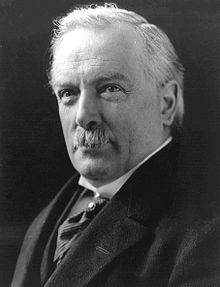Portal:Liberalism
The Liberalism portal
Liberalism is a political and moral philosophy based on the rights of the individual, liberty, consent of the governed, political equality, right to private property and equality before the law. Liberals espouse various and often mutually warring views depending on their understanding of these principles but generally support private property, market economies, individual rights (including civil rights and human rights), liberal democracy, secularism, rule of law, economic and political freedom, freedom of speech, freedom of the press, freedom of assembly, and freedom of religion, constitutional government and privacy rights. Liberalism is frequently cited as the dominant ideology of modern history.
Liberalism became a distinct movement in the Age of Enlightenment, gaining popularity among Western philosophers and economists. Liberalism sought to replace the norms of hereditary privilege, state religion, absolute monarchy, the divine right of kings and traditional conservatism with representative democracy, rule of law, and equality under the law. Liberals also ended mercantilist policies, royal monopolies, and other trade barriers, instead promoting free trade and marketization. Philosopher John Locke is often credited with founding liberalism as a distinct tradition based on the social contract, arguing that each man has a natural right to life, liberty and property, and governments must not violate these rights. While the British liberal tradition has emphasized expanding democracy, French liberalism has emphasized rejecting authoritarianism and is linked to nation-building. (Full article...)
Selected article -
The Partnership for Civil Justice Fund (PCJF) is a nonprofit progressive legal organization based in Washington, D.C. Founded by Carl Messineo and Mara Verheyden-Hilliard, the organization focuses on cases regarding free speech and dissent, domestic spying and surveillance, police misconduct, and government transparency.
The Partnership is known for litigating on behalf of protesters in First Amendment cases. It has frequently sued the District of Columbia government and D.C. police department. In addition to its litigation work in the courts, the Partnership also pursues freedom of information requests to obtain public records relating to police surveillance of activist groups. In 2003, the Washington Post called the organization "the constitutional sheriffs for a new protest generation." (Full article...)Selected biography -
David Lloyd George, 1st Earl Lloyd-George of Dwyfor, OM, KStJ, PC (17 January 1863 – 26 March 1945) was Prime Minister of the United Kingdom from 1916 to 1922. A Liberal Party politician from Wales, he was known for leading the United Kingdom during the First World War, for social-reform policies (including the National Insurance Act 1911), for his role in the Paris Peace Conference, and for negotiating the establishment of the Irish Free State. He was the last Liberal Party prime minister; the party fell into third-party status shortly after the end of his premiership.
After becoming active in local politics, Lloyd George gained a reputation as an orator and a proponent of a Welsh blend of radical Liberal ideas, which included support for Welsh devolution, for the disestablishment of the Church of England in Wales, for equality for labourers and tenant farmers, and for reform of land ownership. In 1890 he narrowly won a by-election to become the Member of Parliament for Caernarvon Boroughs, in which seat he remained for 55 years. He served in Henry Campbell-Bannerman's cabinet from 1905. After H. H. Asquith succeeded to the premiership in 1908, Lloyd George replaced him as Chancellor of the Exchequer. To fund extensive welfare reforms he proposed taxes on land ownership and high incomes in the "People's Budget" (1909), which the Conservative-dominated House of Lords rejected. The resulting constitutional crisis was only resolved after two elections in 1910 and the passage of the Parliament Act 1911. His budget was enacted in 1910, and the National Insurance Act 1911 and other measures helped to establish the modern welfare state. In 1913, he was embroiled in the Marconi scandal, but he remained in office and promoted the disestablishment of the Church of England in Wales until 1914, when its implementation was suspended in response to the outbreak of the First World War. (Full article...)List of selected biographies
|
|---|
Selected quote
General images
Subcategories
Related portals
WikiProjects
Topics
Recognized content
Associated Wikimedia
The following Wikimedia Foundation sister projects provide more on this subject:
-
Commons
Free media repository -
Wikibooks
Free textbooks and manuals -
Wikidata
Free knowledge base -
Wikinews
Free-content news -
Wikiquote
Collection of quotations -
Wikisource
Free-content library -
Wikiversity
Free learning tools -
Wiktionary
Dictionary and thesaurus



























































